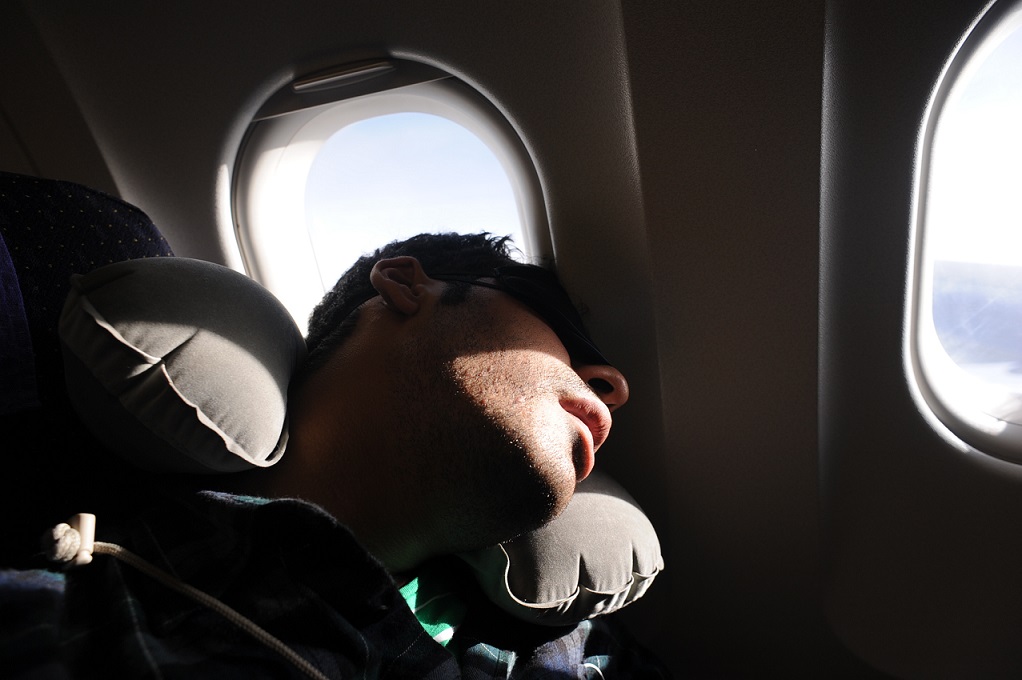Jet lag is a condition which you may experience when you travel from one time zone to another. Since the body has a biological clock, a change or disruption of its normal routine results in loss of sleep, fatigue and stomach problems. The condition gets worse if multiple time zones are involved. And while jet lag is temporary, it can affect your work or holiday. Having said this, in this discussion we will look at the jetlag symptoms and some ways to overcome them.

Jet Lag Symptoms
Someone who is suffering from jetlag is likely to undergo emotional and physical symptoms including:
- Fatigue
- Insomnia
- Increased anxiety
- A running stomach
- Constipation
- Migraines
- Drowsiness during the day
- Short attention span
- Dizziness
- Indigestion
- Feeling unwell
- Dehydration
- Poor coordination in the limbs
- Heartbeat irregularities
Typically, symptoms will go away without medical attention unless in extreme cases which are rare; otherwise, staying in bed and getting plenty of rest will do the trick. It is important to note that children and infants also experience jetlag symptoms just the same as adults.
In the case of preexisting medical conditions such as a heart disease, the exertion related to flying such as immobility, high altitudes, and disruption of the biological rhythm can lead to a heart attack. Consult your doctor about flying if you have any medical condition.
How Long Will You Suffer from Jet Lag Symptoms?
The time it takes to recover from jetlag is normally dependent on how many time zones you have crossed. The more time zones are crossed, the longer the jet lag will take to clear. In most cases, your body should adjust within one day for every two time zones. So if you traveled four time zones, it would take typically two days for your body to adjust to the new time zone.
How to Deal with Jet Lag
You can take the following steps to reduce the effects of jetlag:
- Get a breath of fresh air in the outdoors; the natural light and breath of air will help your body to adjust.
- Contrary to popular belief, napping immediately after landing will not make things better, no matter how tired you may be. Instead, try and stay awake until the sleep time of the new time zone.
- Practice going to bed and waking up in the new time zone hours. Your body probably is still used to the sleeping routine of the previous time zone, but you can slowly condition yourself to adjust to the new place.
- If you are having trouble waking up in the morning, try to kick start your day with a cup of coffee.
Medications and the Role of Melatonin in Jet Lag Symptoms
There is no medication to treat jetlag. However, you can get some relief by taking over-the counter drugs for symptoms like a headache or nausea. Melatonin is the sleep hormone produced by the brain that induces sleep. Once your eyes sense darkness, the hypothalamus in the brain produces melatonin to induce sleep.
This natural method of the body working to restore its routine will take up to three days. Most patients are therefore advised to take melatonin for the first few days, especially if they have traveled in more than five different time zones.
Melatonin is best taken following a doctor’s advice. A five milligram dose of melatonin should suffice. Make sure that you avoid alcohol completely when taking melatonin.
When suffering from jet lag symptoms, only take sleeping pills when it is necessary and preferably with a prescription from your doctor. Don't take the pills more than three nights.
Light Therapy
Light therapy works by exposing yourself to artificial light that is meant to keep you awake during the times that you need to be awake. This will help your body to adjust to the new daylight hours, thus allowing you to fall sleep and wake up at the appropriate times.
This is especially useful for people who, due to a busy lifestyle or work-related issues, have no time to expose themselves to sunlight in the new time zone. Light therapy comes in a variety of shapes and sizes, including a light box, a desk lamp and a visor which you wear on the head.
How to Prevent Jet Lag
Jet lag can't be avoided, but you can try some strategies that may reduce its effects. There are tips that you can take before and after traveling that will help in combating the symptoms of jetlag.
Before Travelling
- Practice your new sleep patterns beforehand – if you are traveling west, practice going to bed an hour later and if you are bound east, then start sleeping an hour later than usual.
- Get plenty of rest before take-off – boarding a plane while tired may cause the jetlag to be worse.
During the Flight
- Take plenty of fluids hours before you travel.
- Try and take as many naps as you can. This will keep you well rested and energized.
- Avoid caffeine before and during the flight.
- Avoid alcohol as it only worsens the effect of jetlag. You will then have to deal with a hangover on top of the fatigue, insomnia, and gastrointestinal problems.
- Keep your body active by taking frequent walks and stretching your arms and legs.
- You can also change your time to match the new time zone so that you can adjust more quickly. It’s like tricking the brain into adjusting to the new time zone, and the body will quickly follow suit.
- Make use of earplugs and sleeping masks to aid you to sleep better if this is what it takes.
